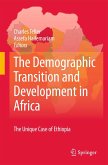This Handbook explores the challenges demographic change poses to todaya (TM)s Japan. The first part provides the fundamental data involved, and the subsequent two parts address the social and cultural aspects of Japana (TM)s demographic change. Parts four and five are dedicated to the political, economic and social security aspects of demographic change. The Handbook brings together a group of international scholars of various disciplinary backgrounds to take issue with the worlda (TM)s fastest demographic transition. Topics include the dynamics of gender roles, images of age, policy formation, labour market structures, pension system, living arrangements, ethical values, and many more. Against the background of Japana (TM)s demographic change, the latest developments in these fields are being introduced, and whenever appropriate set into a context of historical and/or international comparison. This Handbook is the first comprehensive publication in English on Japana (TM)s demographic change. Contributors include: Makoto Atoh, Hans Dieter A-lschleger, Ryuichi Kaneko, Ralph LA1/4tzeler, Shigemi Kono, Matthias Koch, Sepp Linhart, Takeo Ogawa, Chikako Usui, Leng Leng Thang, Susan (Orpett) Long, Sawako Shirahase, Toshiko Himeoka, James Raymo, Miho Iwasawa, Akiko S Oishi, Stephen Murphy-Shigematsu, David Blake Willis, Susanne Formanek, Mayumi Sekizawa, Christopher S Thompson, John W Traphagan, Kenji Ishii, Craig Martin, Peter Backhaus, Fumio Inoue, Lisette Gebhardt, Nobuko Shiraishi, Sumiko Iwao, Roger Goodman, Takanori Shintani, Fumihiko Satofuka, Carolin Funck, John Clammer, Wolfram Manzenreiter, Leonard Schoppa, John C Campbell, Paul Talcott, David Potter, Robert Pekkanen, Yutaka Tsujinaka, Akihiro Ogawa, Susanne Kreitz-Sandberg, Liv Coleman, Glenda S Roberts, Thomas Feldhoff, Patricia Maclachlan, Naohiro Ogawa, Akihiro Kawase, Seiritsu Ogura, Volker Elis, Charles Yuji Horioka, Fumio Ohtake, Hisashi Fukawa, Naohiro Yashiro, Hendrik Meyer-Ohle, Karen A Shire, Harald Conrad, Hidehiko Sekizawa, Andreas Moerke, Ito Peng, Naoki Ikegami, Makoto Arai, Tetsuo Fukawa, Takashi Oshio, Noriyuki Takayama, and Tomoyuki Kubo.








